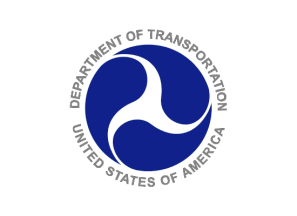Monday, May 15, 2023
DETROIT, MI – While in Detroit for the APEC Transportation Ministers’ Meeting, U.S. Transportation Secretary Pete Buttigieg and the U.S. co-hosted a summit with the United Kingdom and Canada that included the UK’s Secretary of State for Transport Mark Harper, Canada’s Minister of Transport Omar Alghabra, the Singapore Minister for Transport S Iswaran, civil society representatives, and industry leaders to discuss how to unlock the private sector capital investment necessary to scale the Sustainable Aviation Fuels (SAF) market, grow the economy, and achieve a net zero aviation sector.
In addition to creating good-paying jobs and supporting American agriculture and manufacturing, SAF can deliver the safety and performance of conventional jet fuel but with a fraction of its net carbon footprint, which is key, as the transportation sector is the largest source of carbon emissions in the U.S. economy. The Biden-Harris Administration has laid out a roadmap to scale up SAF production across the U.S. to three billion gallons each year by 2030, unlocking the potential for a fully net zero-carbon aviation sector by 2050. To help achieve these goals, President Biden’s Inflation Reduction Act includes tax credits to help close the cost gap between SAF and conventional jet fuel, as well as resources for the Federal Aviation Administration to help get the fuel from the farm field to the airfield.
During the SAF Investment Summit in Detroit on May 15, participants representing investors, major financial institutions, aircraft manufacturers, airlines, non-governmental organizations, fuel producers, and national transportation agencies emphasized the need for cooperation among the public and private sectors globally to send a consistent market signal and ensure a healthy supply of SAF to meet the increasing demand from aviation stakeholders.
During the hour-long discussion, a few themes emerged from the Summit:
- The need for a diversity of technology and feedstocks;
- How to manage (not eliminate) the risk of investment in SAF through sound, coordinated public policy;
- The importance of incentive design, especially durability and stackability, to create a level playing field for all market participants;
- A call for broad and continued engagement across the globe and across sectors, including aviation, finance, fuel suppliers, and agriculture;
- Interest in harmonizing policy efforts across leading governments
- Interest in advancing efforts at the International Civil Aviation Organization;
- Implementing measures that support both demand (e.g., credible mandates) as well as supply (e.g., well-designed incentives).
Click here to learn more about the United States Aviation Climate Action plan, which describes a whole-of government approach to put the sector on a path toward achieving net-zero emissions by 2050.
###
Official news published at https://www.transportation.gov/briefing-room/readout-international-summit-investment-sustainable-aviation-fuel-detroit



